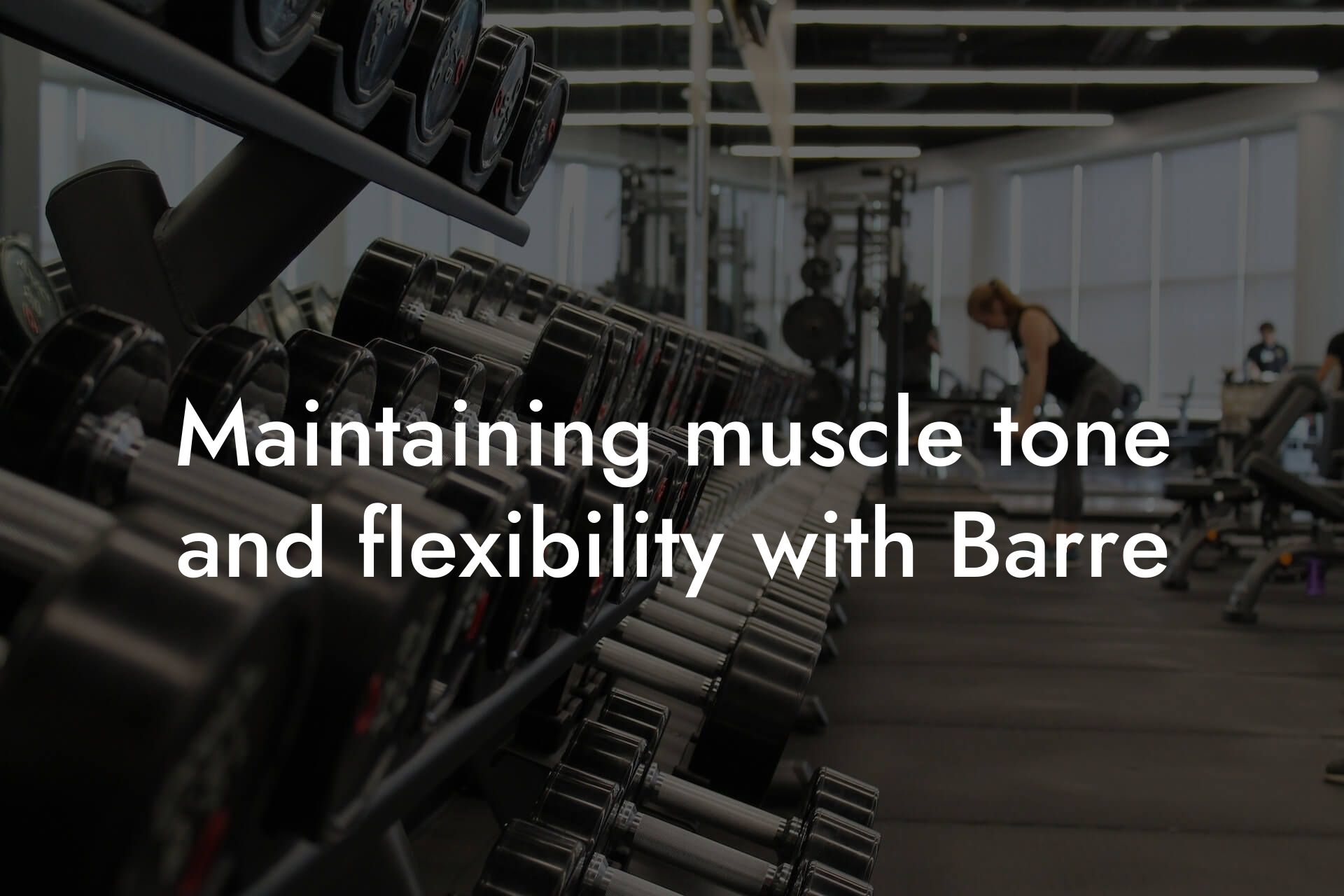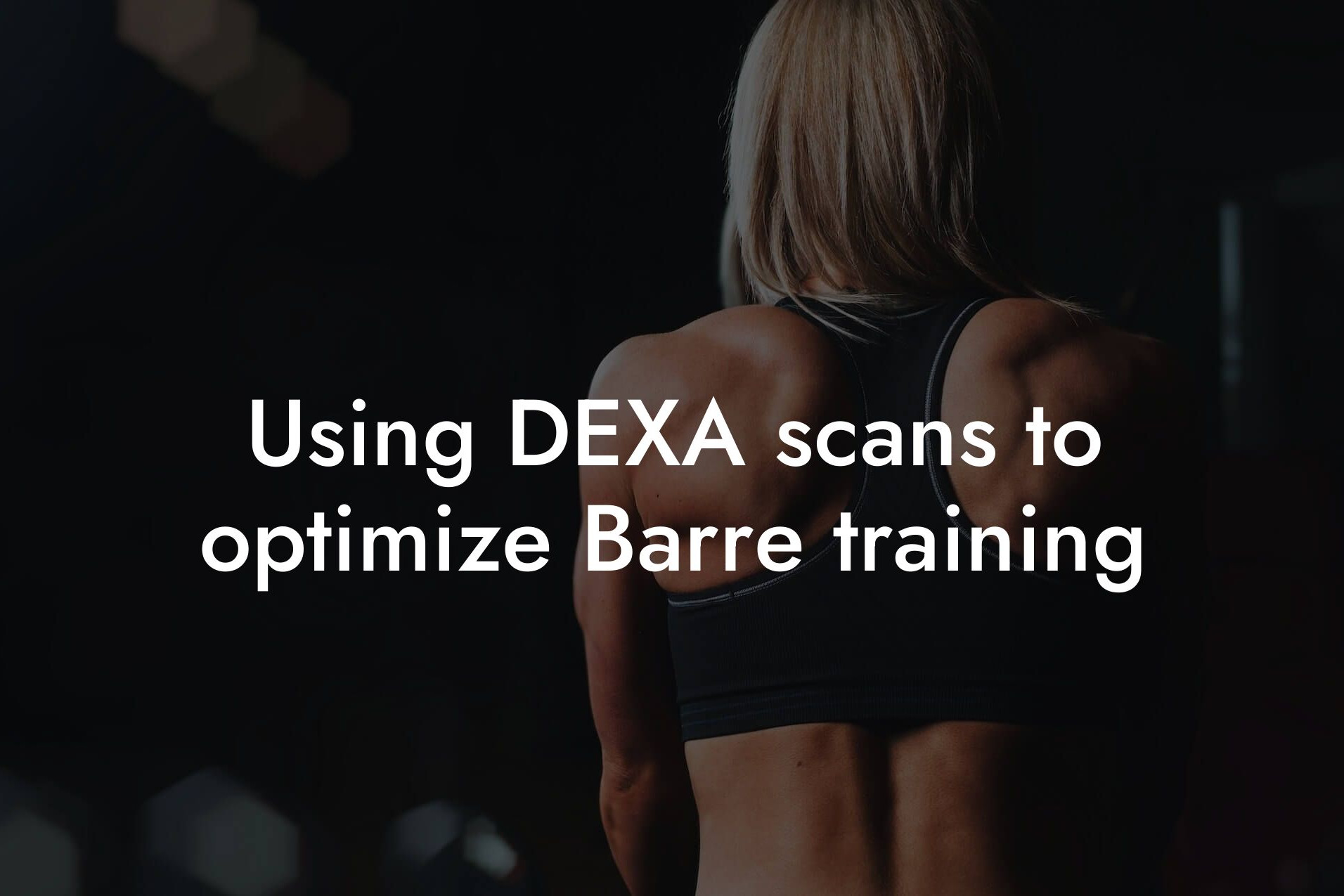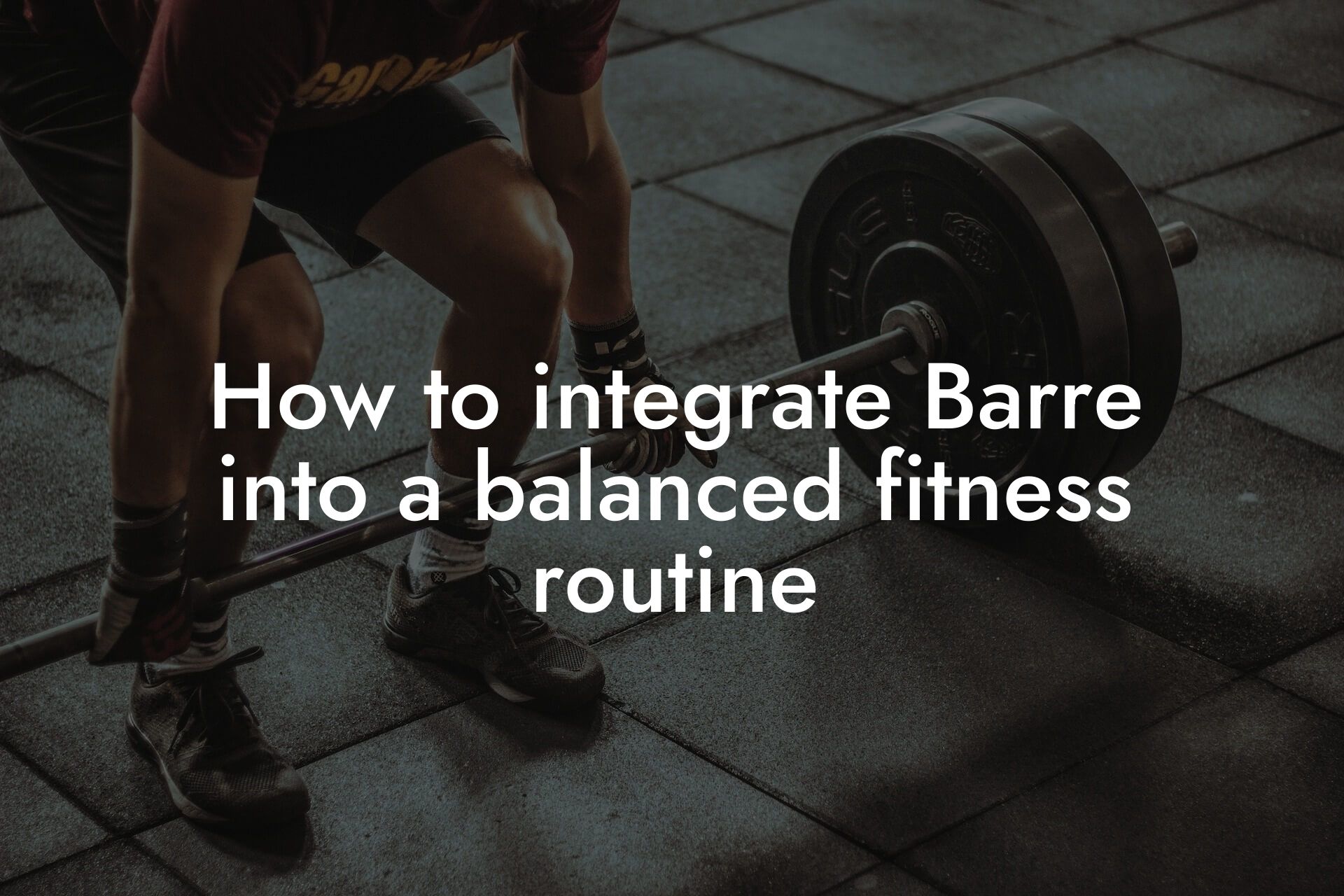What is Bone Density?
Bone density refers to the measure of how dense and strong your bones are. It is an important indicator of overall bone health, and it can have a significant impact on your Barre practice. Bone density is measured by the amount of minerals, such as calcium and phosphorus, present in your bones. The higher the bone density, the stronger and more resilient your bones are.
Table of Contents
- What is Bone Density?
- Why is Bone Density Important for Barre Practitioners?
- How Does Barre Practice Affect Bone Density?
- Risks of Low Bone Density for Barre Practitioners
- Benefits of Good Bone Density for Barre Practitioners
- How to Improve Bone Density for Barre Practice
- DEXA Scans for Bone Density Measurement
- Frequently Asked Questions
Why is Bone Density Important for Barre Practitioners?
Barre practice is a form of exercise that involves repetitive movements, weight-bearing exercises, and flexibility training. It requires strength, control, and precision, which can put a significant amount of stress on your bones. As you age, your bone density naturally decreases, which can increase your risk of osteoporosis, fractures, and other bone-related injuries. Maintaining good bone density is crucial for Barre practitioners to prevent injuries, improve performance, and maintain overall health.
How Does Barre Practice Affect Bone Density?
Barre practice can have both positive and negative effects on bone density. On the positive side, weight-bearing exercises and resistance training can help stimulate bone growth and increase bone density. However, repetitive movements and high-impact exercises can also put excessive stress on your bones, leading to decreased bone density and increased risk of injury.
Risks of Low Bone Density for Barre Practitioners
Low bone density can increase the risk of several injuries and health problems for Barre practitioners, including:
- Osteoporosis: a condition characterized by brittle and porous bones
- Fractures: breaks in the bone that can occur with minimal trauma
- Stress fractures: small cracks in the bone that can occur due to repetitive stress
- Shin splints: pain and inflammation in the lower leg due to repetitive stress
- Decreased performance: low bone density can lead to decreased strength, flexibility, and overall performance
Benefits of Good Bone Density for Barre Practitioners
Good bone density can provide several benefits for Barre practitioners, including:
- Improved performance: stronger bones can support more intense and frequent exercise
- Reduced risk of injury: good bone density can reduce the risk of fractures, stress fractures, and other bone-related injuries
- Enhanced flexibility: good bone density can improve flexibility and range of motion
- Better overall health: good bone density is associated with better overall health and reduced risk of chronic diseases
How to Improve Bone Density for Barre Practice
There are several ways to improve bone density for Barre practice, including:
- Incorporating weight-bearing exercises: exercises that involve bearing weight, such as squats and lunges, can help stimulate bone growth
- Resistance training: exercises that involve resistance, such as leg press and deadlifts, can help strengthen bones
- High-impact exercises: exercises that involve high-impact movements, such as jumping and running, can help stimulate bone growth
- Proper nutrition: consuming a diet rich in calcium and vitamin D can help support bone health
- Reducing stress: high levels of stress can lead to decreased bone density, so finding ways to manage stress is important
DEXA Scans for Bone Density Measurement
DEXA (Dual-Energy X-ray Absorptiometry) scans are a non-invasive and accurate way to measure bone density. DEXA scans use X-rays to measure the density of your bones, and they can provide a detailed report on your bone health. At Tano Performance Group, we offer DEXA scans as part of our comprehensive body assessment, which can help you understand your bone density and develop a personalized plan to improve it.
Bone density is a critical component of overall health and fitness, and it plays a significant role in Barre practice. By understanding the importance of bone density, the risks of low bone density, and the benefits of good bone density, Barre practitioners can take steps to improve their bone health and optimize their performance. With the help of DEXA scans and personalized coaching, you can achieve your fitness goals and maintain good bone density for a lifetime of healthy and active living.
Frequently Asked Questions
What is bone density and why is it important for Barre practice?
Bone density refers to the measure of the amount of minerals, such as calcium and phosphorus, present in the bones. It is an important aspect of overall health, particularly for individuals who engage in physical activities like Barre, as it determines the strength and resilience of the bones. Maintaining optimal bone density is crucial to prevent injuries, fractures, and osteoporosis.
How does Barre practice affect bone density?
Barre practice, which involves low-impact movements and weight-bearing exercises, can help improve bone density by stimulating the growth of new bone tissue and increasing the strength of existing bones. This is especially beneficial for individuals who are at risk of osteoporosis or have already been diagnosed with the condition.
What are the benefits of improving bone density through Barre practice?
Improving bone density through Barre practice can have numerous benefits, including increased strength and stability, reduced risk of fractures and osteoporosis, improved posture, and enhanced overall physical performance. Additionally, strong bones can also boost confidence and reduce the risk of injuries during other physical activities.
Can Barre practice help with osteoporosis?
Yes, Barre practice can be beneficial for individuals with osteoporosis. The low-impact, weight-bearing exercises involved in Barre can help stimulate bone growth and increase bone density, reducing the risk of fractures and improving overall bone health.
How often should I practice Barre to see improvements in bone density?
It is recommended to practice Barre at least 2-3 times per week, with a minimum of 30 minutes per session, to see noticeable improvements in bone density. Consistency is key, so it's essential to make Barre a regular part of your fitness routine.
What are some modifications I can make to my Barre practice to accommodate bone density concerns?
If you have concerns about bone density, it's essential to modify your Barre practice to ensure safety and effectiveness. This may include avoiding high-impact movements, using props for support, and focusing on low-impact, weight-bearing exercises that target the bones.
Can I practice Barre if I have a history of fractures or osteoporosis?
Yes, but it's crucial to consult with a healthcare professional or a certified Barre instructor who has experience working with clients with bone density concerns. They can help you modify your practice to ensure safety and effectiveness.
How does age affect bone density and Barre practice?
As we age, our bone density naturally decreases, making it more important to engage in activities that promote bone growth and strength. Barre practice can be particularly beneficial for older adults, as it can help improve bone density, reduce the risk of fractures, and enhance overall physical function.
Can Barre practice help with bone loss due to menopause?
Yes, Barre practice can help mitigate bone loss due to menopause. The weight-bearing exercises involved in Barre can help stimulate bone growth and increase bone density, reducing the risk of osteoporosis and fractures.
How does nutrition impact bone density and Barre practice?
Nutrition plays a critical role in maintaining optimal bone density. A diet rich in calcium, vitamin D, and other essential nutrients can help support bone health and enhance the benefits of Barre practice.
What are some key nutrients for bone health and Barre practice?
Key nutrients for bone health and Barre practice include calcium, vitamin D, vitamin K, magnesium, and phosphorus. These nutrients can be found in foods such as dairy products, leafy greens, and fortified cereals.
Can I practice Barre during pregnancy to improve bone density?
Yes, Barre practice can be modified to accommodate pregnancy and can help improve bone density. However, it's essential to consult with a healthcare professional or a certified Barre instructor who has experience working with pregnant clients.
How does Barre practice compare to other forms of exercise for improving bone density?
Barre practice is a low-impact, weight-bearing form of exercise that can be particularly beneficial for improving bone density. It offers a unique combination of strength training, flexibility, and balance exercises that can help stimulate bone growth and increase bone density.
Can I practice Barre if I have a bone condition such as osteopenia or Paget's disease?
Yes, but it's crucial to consult with a healthcare professional or a certified Barre instructor who has experience working with clients with bone conditions. They can help you modify your practice to ensure safety and effectiveness.
How does Barre practice impact overall physical performance?
Barre practice can have a profound impact on overall physical performance, improving strength, flexibility, balance, and posture. This can enhance overall physical function and reduce the risk of injuries during other physical activities.
Can Barre practice help with weight management?
Yes, Barre practice can help with weight management by building lean muscle mass, improving metabolism, and increasing caloric burn. This can be particularly beneficial for individuals who are trying to lose weight or maintain weight loss.
How does Barre practice impact mental health and well-being?
Barre practice can have a profound impact on mental health and well-being, reducing stress and anxiety, improving mood, and enhancing overall sense of well-being. This can be particularly beneficial for individuals who are struggling with mental health concerns.
Can I practice Barre if I have a history of joint pain or injuries?
Yes, but it's crucial to consult with a healthcare professional or a certified Barre instructor who has experience working with clients with joint pain or injuries. They can help you modify your practice to ensure safety and effectiveness.
How does Barre practice impact sleep quality?
Barre practice can help improve sleep quality by reducing stress and anxiety, improving mood, and enhancing overall physical function. This can be particularly beneficial for individuals who are struggling with sleep disorders.
Can I practice Barre if I have a history of back pain or spinal injuries?
Yes, but it's crucial to consult with a healthcare professional or a certified Barre instructor who has experience working with clients with back pain or spinal injuries. They can help you modify your practice to ensure safety and effectiveness.
How does Barre practice impact overall quality of life?
Barre practice can have a profound impact on overall quality of life, improving physical function, reducing the risk of injuries and chronic diseases, and enhancing overall sense of well-being. This can be particularly beneficial for individuals who are looking to improve their overall health and wellness.
What are some common mistakes to avoid when practicing Barre for bone density?
Common mistakes to avoid when practicing Barre for bone density include failing to warm up properly, pushing past pain or discomfort, and neglecting to modify exercises to accommodate bone density concerns.
How can I track my progress and improvements in bone density through Barre practice?
You can track your progress and improvements in bone density through Barre practice by monitoring your bone density scores, tracking your exercise routine and progress, and paying attention to changes in your overall physical function and well-being.
What are some additional resources for learning more about bone density and Barre practice?
Additional resources for learning more about bone density and Barre practice include consulting with a healthcare professional or certified Barre instructor, reading articles and research studies, and participating in online forums and communities.
How can I incorporate Barre practice into my existing fitness routine?
You can incorporate Barre practice into your existing fitness routine by scheduling regular Barre sessions, modifying your existing exercises to accommodate bone density concerns, and incorporating Barre exercises into your daily routine.
What are some tips for getting started with Barre practice for bone density?
Tips for getting started with Barre practice for bone density include finding a qualified instructor, starting slowly and gradually increasing intensity, and focusing on proper form and technique.
Here are some related articles you might love...
- Maintaining muscle tone and flexibility with Barre
- Using DEXA scans to optimize Barre training
- How to integrate Barre into a balanced fitness routine
- Nutrition tips for sustained energy in Barre classes
- Recovery strategies for Barre practitioners
- Reducing body fat for improved Barre results
- Barre for injury prevention and rehabilitation
- The importance of core strength in Barre fitness
- How body composition impacts Barre performance
Zak Faulkner
Zak Faulkner is a leading authority in the realm of physical health and body composition analysis, with over 15 years of experience helping professionals optimise their fitness and well-being. As one the experts behind Tano Performance Group, Zak has dedicated his career to providing in-depth, science-backed insights that empower clients to elevate their physical performance and overall health.
With extensive knowledge of DEXA technology, Zak specializes in delivering comprehensive body assessments that offer precise data on body fat, muscle mass, bone density, and overall physique. His expertise enables individuals to make informed decisions and achieve their fitness goals with accuracy and confidence. Zak’s approach is rooted in a deep understanding of human physiology, combined with a passion for helping clients unlock their full potential through personalised strategies.
Over the years, Zak has earned a reputation for his commitment to excellence, precision, and client-focused service. His guidance is trusted by top professionals who demand the best when it comes to their health. Whether advising on fitness programs, nutritional strategies, or long-term wellness plans, Zak Faulkner’s insights are a valuable resource for anyone serious about taking their health and fitness to the next level.
At Tano Performance Group, Zak continues to lead our Content Team revolutionising how professionals approach their physical health, offering unparalleled expertise that drives real results.




